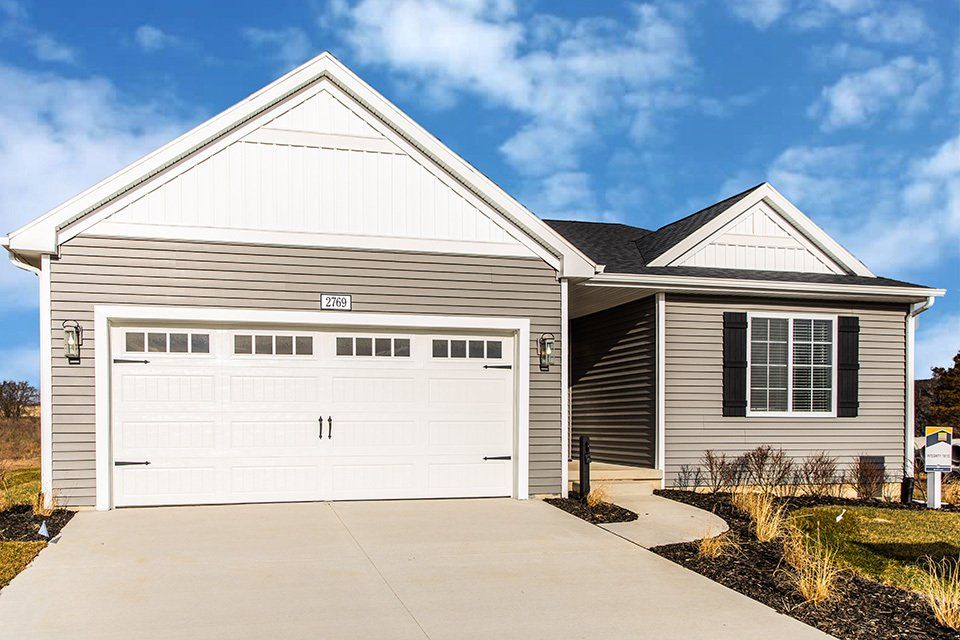Hillsdale — The meadow west of town was once a pasture for Nichols Turkey Farm, but the turkey farm is gone. Like so much of Hillsdale’s industry and small agriculture, it’s been gone for decades now. All that remains is a grass field.
It’s not so bad, the grass field. To the residents of Hillsdale, it is another meadow. But to the state of Michigan, the field is a “blight,” a reminder that the area’s GDP has not been maximized. So, with the aid of local administrators, they’re turning it into a pre-planned HOA-style subdivision.
After the Nichols family gave up on turkeys, the City of Hillsdale acquired the grass field with the aim of using that field to generate revenue. Things haven’t gone so well on that front. Some real estate deals, sweetened by a $1-a-lot price tag and a personal tax abatement, failed to come to fruition, leaving the land in the city’s possession. But the Michigan Economic Development Corporation—the group behind the failed “Pure Michigan” tourist slogan—is here to save the day.
With a recommendation in hand from the local branch of the MEDC, the Hillsdale City Council decided at a November 4 meeting to cut a deal with an out-of-town developer, Allen Edwin Homes, a Portage-based corporation that builds hundreds of suburban homes each year in complexes bearing nondescript names, such as “Three Meadows” or “Forest Lanes” or “Hidden Creek,” mostly for the transient managerial class. The deal includes a $7 million, 25-year property tax abatement to “entice” the builder.

Naturally, the developer will build its homes using its own out-of-town supply chains, and with no attention to the architecture that is unique to Hillsdale’s neighborhoods, which is of two distinctive styles: the old city, neat, upright, and stately homes built up during the late 19th- and early 20th-century railroad boom, and the newer neighborhoods, the low-pitched roof mid-century homes with large windows and spacious rooms. But mega builders don’t tend to care about such things. Allen Edwin has already constructed six homes in the area, and they’d fit in any Chicago or Lansing or Grand Rapids suburb.
The new builds will allegedly be sold for $280,000-$350,000—unaffordable for the average Hillsdale resident, who makes about $30,000 per year. No, the 61 planned new homes won’t be for the people who live here; they are for someone else, someone who doesn’t live here. Why would the local government agree to such a deal?
Hillsdale, a town of 8,000 or so, is a rural city in a rural county. Both the city and the county are relatively poor. Many residents can’t pay the city’s already high property taxes. This reality, unfortunately, doesn’t give ambitious consultants pause—MEDC has already decided that Hillsdale is in “Prosperity Region 9.” They have designs for the place. The MEDC’s goal is perpetual artificial growth, leveraging money from Michigan taxpayers, claiming to have success, but only by way of vague and indescribable metrics. Its purpose is to intrude into local politics and make sure that towns and cities across the state are abiding by the state’s preferred program.
MEDC justifies its work in small towns across Michigan on the grounds that these endeavors will grow local GDP. Give up your cash, it’s for the greater good, they say. Studies, which the public cannot access, are presented, demonstrating the immense prosperity that the EDC will bring. The dissenting opinions of locals are met with disdain. City councils across the state now consider themselves functionaries within the larger economic development machine.
And the bias is toward blueprints laid out in advance: bland HOA subdivisions, Edward Joneses, strip malls, an Applebee’s and a Target within 15 minutes. These amenities will all appeal to the right sort of people.
So, at the behest of the MEDC, and over the pleas of many citizens who spoke against it at the meeting, the city council voted to put an end to the “blight.” The HOA subdivision will grow on the edge of this small city like a tumor, because “economic development” is about forcing growth. It’s about flattening the texture of the town, making it more appealing to people from anywhere and everywhere. The so-called growth mindset lacks discretion and considers the temporary influx of money the only good.
The grass field was a reminder to them that maximal profits have not yet been extracted from this little town, that it is not expanding quickly enough, that more wallets are not moving in, that it isn’t diving headlong into the future.
Jacob Bruns is a teacher and father of four who lives in Hillsdale.



